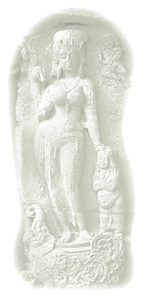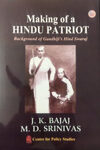Sri Dharampal
Dharampal was born in 1922 at Kandhala in the Muzaffarnagar district of Uttar Pradesh. He has been associated in various ways with the resurgence of the skills and talents of the people of India and the restoration of their social, political and economic organisations centered on the locality and the community. After being active in the Quit India Movement, he worked for some years with Mirabehn, an associate of Mahatma Gandhi, and in the 1950’s also attempted to found a cooperative village near Rishikesh. He was General Secretary of the Association of Voluntary Agencies for Rural Development (1958-64) and Director, Study and Research, All India Panchayat Parishad (1963-65). He was closely associated with the late Sri Jaiprakash Narayan, who deeply appreciated his research and writings.
From the mid-sixties Dharampal devoted himself, for almost two decades, to an exploration of Indian archives spread over the British Isles. His published works of this period include: Indian Science and Technology in the Eighteenth Century: Some Contemporary Indian Accounts (1971), Civil Disobedience and the Indian Tradition (1971) and The Beautiful Tree: Indigenous Indian Education in the Eighteenth Century (1983). He has also authored Panchayat Raj as the Basis of Indian Polity: An Exploration into the Proceedings of the Constituent Assembly (1962) and The Madras Panchayat System: A General Assessment (1973). Recently several collections of his essays have been compiled and published by several of his younger associates. A complete listing of his published and unpublished works is compiled below.
Dharampal served as a member of the Indian Council of Historical Research for two terms in the early 1990s and again for a term recently. He was also the Chairman of the Commission on Protection of Cow set up by the Government of India in 2001.
Dharamapal has been associated with the Centre from the earliest days. For the first few years, when he was located in Chennai, the Centre was fortunate to receive his active association and guidance in all its activities. During this period, he undertook a preliminary study of the Indian classical literature. Based on this study he tried to place the situation of India today within context of the basic contours of Indian consciousness, Indian Mind and the Indian sense of the flow of Time. Based on his extensive talks on the subject, the Centre compiled, translated and published an extended essay on the subject, entitled, Bharatiya Chitta Manas and Kala (1993). It was also during this period that the Centre, on his urging and support, organised a series of talks on the Ayodhya issue, which were compiled and published in a volume entitled, Ayodhya and the Future India (1993).
In the mid-1990s, Dharampal moved from Chennai to Sewagram; but he has continued to be associated with the Centre as an Emeritus Fellow.



